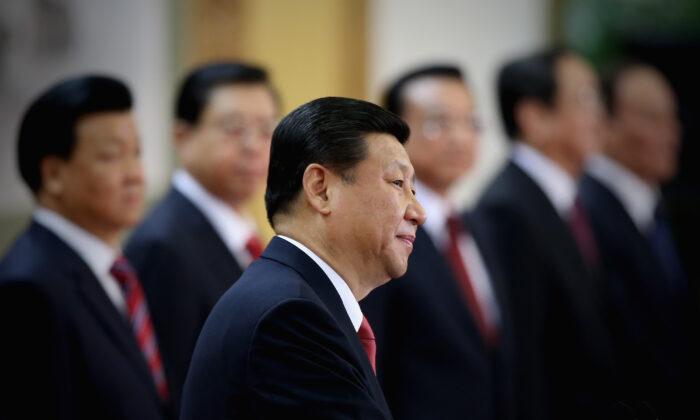Since Xi Jinping took office in late 2012, many high-level officials have reportedly been dismissed amid his anti-corruption campaign. One China expert says that the campaign was aimed at targetting Xi’s political rivals.
The number of officials who were removed from their posts and the amount of money they embezzled is just the tip of the iceberg, China expert Li Yanming told the Chinese language edition of The Epoch Times on Oct. 18. “The Chinese Communist regime is essentially a gang, using privileges and benefits to maintain the bureaucracy.”
Nine officials were charged with bribery involving over 1 billion yuan (about $140 million), and they include Zhang Zhongsheng, former vice mayor of Lüliang city in Shanxi Province; Zhou Yongkang, former member of the Standing Committee of the Central Politburo; Lai Xiaomin, former chairman of Huarong Asset Management; Yang Xianjing, former inspector of the Department of Land and Resources of Anhui Province; Bao Shengrong, former deputy director of the Standing Committee of the Erdos Party Congress; Gao Fubo, the former chairman of Jilin Trust Co., Ltd.; Li Jianping, former secretary of the Party Working Committee of Hohhot economic and technological development zone in Inner Mongolia; Chen Shulong, former vice governor of Anhui Province, and Cai Guohua, former chairman of HengFeng Bank, who ranked the highest in corruption at $10.3 billion (about $1.4 billion).
These officials allegedly committed crimes such as bribery, abuse of power, and embezzlement.
Li said that most of these officials were loyal to former CCP leader Jiang Zemin and his close ally Zeng Qinghong. They have monopolized state-owned resources such as minerals found in Inner Mongolia, Qinghai, and Guangxi.
“The amount of corruption by powerful families such as Jiang Zemin and Zeng Qinghong might be in the trillions,” Li added.

Corruption in Inner Mongolia
Inner Mongolia is an important energy security base in China. It is called the hometown of open-pit coal mining and is known for its abundant mineral resources. Its southwestern city Erdos makes up one-third of the region’s coal resources and nearly one-sixth of China’s proven reserves.On Feb. 28, 2020, Xi launched an investigation into the region’s coal industry.
In addition to the coal industry, Inner Mongolia’s banking and insurance systems, including Baoshang Bank, were allegedly involved in embezzling public funds.
Xi’s Goal Is to Take Down Political Rivals
Getting rid of corruption is not the only reason why Xi targets these officials, said Li, indicating that Xi’s primary goal is to eliminate the various forces within the CCP that influence his political decisions.
The case of Zhou Yongkang is a significant example. Zhou was sentenced in 2015 for allegedly misappropriating over 1.6 billion yuan (about $200 million), violating “Party discipline,” and “leaking Party and state secrets.”
According to He, Zhou has placed many of his people throughout the political, legal, military, and financial systems, thus exerting influence over the CCP’s policymaking, which Xi deemed as a threat to his authority.
“The entire number of cadres involved is probably at least 200 officials at the vice provincial and ministerial level or above, with direct or indirect relations with Zhou,” He said.





